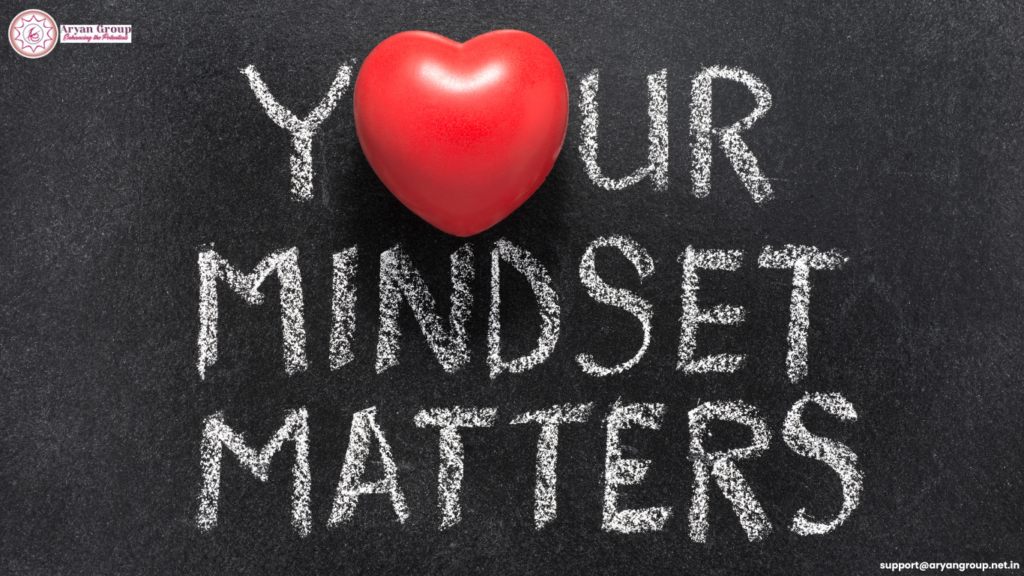In today’s fast-paced world, mindset plays a critical role in determining success, happiness, and overall well-being. Whether you’re striving to achieve personal goals, excel in your career, or simply live a more fulfilling life, understanding and cultivating the right mindset is essential. This guide will delve deep into the concept of mindset, offering actionable advice on how to develop a positive, growth-oriented mental approach that can transform your life.
What is Mindset?
At its core, mindset refers to the set of beliefs and attitudes that shape how we interpret and respond to the world around us. It influences our thoughts, behaviors, and ultimately, our outcomes in various areas of life. Mindset is not a static trait; it can be cultivated and changed over time with conscious effort and practice.
The Two Main Types of Mindsets
Psychologist Carol Dweck, a pioneer in mindset research, identified two primary types of mindsets: fixed mindset and growth mindset.
Fixed Mindset
A fixed mindset is the belief that our abilities, intelligence, and talents are static traits that cannot be changed. People with a fixed mindset tend to avoid challenges, give up easily, and feel threatened by the success of others. They often believe that effort is futile because their abilities are “fixed” and unchangeable.
Growth Mindset
In contrast, a growth mindset is the belief that our abilities and intelligence can be developed through hard work, dedication, and learning. People with a growth mindset embrace challenges, persist through obstacles, and view effort as a path to mastery. They see failures as opportunities to grow and learn, rather than as reflections of their inherent abilities.
Why Mindset Matters
Your mindset shapes the way you perceive the world and, consequently, how you react to various situations. Here’s why it matters:
- Influences Success: A growth mindset fosters resilience and perseverance, which are crucial for achieving long-term goals.
- Impacts Relationships: Your mindset affects how you interact with others, influencing your relationships both personally and professionally.
- Affects Mental Health: A positive mindset is linked to better mental health, including lower levels of stress, anxiety, and depression.
- Determines Happiness: A mindset focused on growth and positivity contributes to greater life satisfaction and happiness.
How to Cultivate a Growth Mindset
Developing a growth mindset is a journey that requires time, patience, and commitment. Here are some strategies to help you cultivate this powerful mental approach:
1. Embrace Challenges
Rather than avoiding difficult tasks, see them as opportunities to grow. Every challenge is a chance to learn something new and improve your skills.
2. View Failures as Learning Opportunities
Instead of seeing failures as a reflection of your abilities, view them as valuable lessons. Analyze what went wrong and use that knowledge to improve in the future.
3. Cultivate a Love for Learning
Stay curious and open to new experiences. Whether it’s picking up a new hobby or deepening your knowledge in a particular field, continuous learning fuels a growth mindset.
4. Surround Yourself with Positive Influences
The people you spend time with can significantly impact your mindset. Surround yourself with individuals who inspire and motivate you to grow and evolve.
5. Practice Self-Compassion
Be kind to yourself, especially when things don’t go as planned. Recognize that setbacks are a natural part of growth and treat yourself with the same compassion you would offer a friend.
6. Set Realistic Goals
Break down your goals into manageable steps. Celebrate small victories along the way to stay motivated and maintain a positive outlook.
7. Cultivate Gratitude
Regularly take time to reflect on the things you’re grateful for. Gratitude shifts your focus from what’s lacking to what’s abundant in your life, fostering a more positive mindset.
8. Use Affirmations
Positive affirmations can rewire your brain to think more positively. Start your day with affirmations that reinforce your growth mindset, such as “I am capable of learning and growing every day.”
The Role of Mindset in Overcoming Obstacles
Life is full of obstacles, and how we approach them often determines the outcome. A growth mindset empowers us to face challenges head-on and find solutions rather than being overwhelmed by difficulties.
Overcoming Professional Challenges
In the workplace, a growth mindset can lead to greater innovation and problem-solving skills. When faced with a tough project or tight deadline, those with a growth mindset are more likely to persevere and find creative solutions.
Dealing with Personal Struggles
On a personal level, a growth mindset helps individuals cope with adversity, whether it’s a health issue, a relationship problem, or a financial setback. By viewing these challenges as opportunities for growth, they are more likely to come out stronger on the other side.
Building Resilience
Resilience is the ability to bounce back from setbacks, and it’s closely tied to a growth mindset. By believing in your capacity to grow and adapt, you build the resilience needed to navigate life’s ups and downs.
The Impact of Mindset on Relationships
Your mindset doesn’t just affect you; it also has a profound impact on your relationships with others. Here’s how:
Enhancing Communication
A growth mindset encourages open and honest communication. When you believe that you and others can grow and improve, you’re more likely to engage in constructive conversations that foster understanding and collaboration.
Strengthening Connections
People with a growth mindset tend to be more empathetic and supportive in their relationships. They’re more willing to invest time and effort into nurturing their connections, leading to stronger and more fulfilling relationships.
Managing Conflicts
Conflicts are inevitable in any relationship, but your mindset determines how you handle them. A growth mindset encourages you to see conflicts as opportunities to learn and grow together, rather than as threats to the relationship.
Mindset and Mental Health
A positive mindset is a powerful tool for maintaining good mental health. Here’s how it helps:
Reducing Stress
A growth mindset allows you to view stressors as challenges rather than threats. This shift in perspective can reduce the intensity of stress and make it more manageable.
Boosting Resilience
By embracing a growth mindset, you build resilience, which is essential for coping with the ups and downs of life. Resilient individuals are less likely to be overwhelmed by negative emotions and more likely to bounce back from adversity.
Promoting Happiness
A positive mindset is closely linked to higher levels of happiness and life satisfaction. When you focus on growth and improvement, you’re more likely to find joy in the journey, rather than just the destination.
Practical Tips for Maintaining a Positive Mindset
Maintaining a positive mindset requires ongoing effort and practice. Here are some practical tips to help you stay on track:
Practice Mindfulness
Mindfulness involves paying attention to the present moment without judgment. It helps you stay grounded and focused, reducing the impact of negative thoughts and emotions.
Keep a Journal
Writing down your thoughts and experiences can help you process your emotions and gain perspective. It’s also a great way to track your progress and celebrate your growth.
Stay Active
Physical activity is not only good for your body but also your mind. Regular exercise releases endorphins, which boost your mood and help you maintain a positive outlook.
Seek Support
Don’t be afraid to reach out for support when you need it. Whether it’s talking to a friend, joining a support group, or seeking professional help, having a support system can make a big difference in maintaining a positive mindset.
If you find that you’re struggling to shift your mindset, seeking professional help can be beneficial. Counselling can provide the guidance and support you need to develop a growth mindset and overcome challenges.
Key Takeaways
- Mindset is a powerful determinant of success, happiness, and overall well-being.
- A growth mindset fosters resilience, creativity, and a love for learning, while a fixed mindset can limit your potential.
- Cultivating a positive mindset involves embracing challenges, viewing failures as learning opportunities, and surrounding yourself with positive influences.
- Your mindset has a profound impact on your relationships, professional success, and mental health.
- Practical strategies like mindfulness, journaling, and seeking support can help you maintain a positive mindset.
FAQ: Frequently Asked Questions About Mindset
1. What is the difference between a fixed mindset and a growth mindset?
A fixed mindset is the belief that abilities and intelligence are static and unchangeable, while a growth mindset is the belief that these qualities can be developed through effort and learning.
2. Can mindset really be changed?
Yes, mindset can be changed. With conscious effort and practice, you can shift from a fixed mindset to a growth mindset, leading to greater success and happiness.
3. How does mindset affect success?
Mindset plays a crucial role in determining success. A growth mindset fosters resilience, perseverance, and a love for learning, all of which are essential for achieving long-term goals.
4. How can I develop a growth mindset?
You can develop a growth mindset by embracing challenges, viewing failures as learning opportunities, cultivating a love for learning, and surrounding yourself with positive influences.
5. Why is mindset important for mental health?
A positive mindset is linked to better mental health, including lower levels of stress, anxiety, and depression. It also promotes resilience and happiness.
6. Can mindset impact relationships?
Yes, mindset has a significant impact on relationships. A growth mindset encourages open communication, empathy, and collaboration, leading to stronger and more fulfilling relationships.
7. How does mindset affect learning?
A growth mindset fosters a love for learning and a willingness to take on challenges. It encourages


Pingback: Communicating with Your Parents